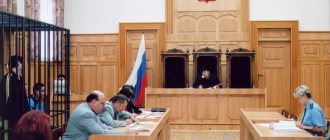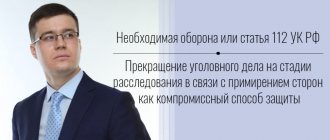Cases are returned, cases are stopped
Statistics, if you look at them, refutes the popular belief about the allegedly accusatory bias of justice. Our approaches are in many ways softer than in other developed countries. At the same time, paradoxically, there are really few clean acquittals. But here the whole point is in some of our legal features: when a person is not guilty, he is not always acquitted, but at the same time he is not condemned. The case simply stops. In just six months, more than 6.3 thousand people were released from pre-trial detention centers without a criminal record. They were either acquitted or their cases were dismissed for a variety of reasons.
“Another trend is that courts have begun to more often return cases to the prosecutor. According to the Judicial Department, this has happened 6,300 times this year. For comparison: last year, over six months, the courts returned 5.9 thousand cases. At the same time, fewer cases were brought to the courts, so in fact it turns out that the courts began to treat the accusations much more strictly,” says criminal lawyer Evgeniy Erlikhman
In practice, it often happens that a case returned to the prosecutor’s office quietly dies there. Everyone seems to be staying the same: the person has not been convicted, but the law enforcement officers do not seem to have lost in court. Of course, a return does not mean that the matter will be forgotten. Sometimes the investigation corrects mistakes and brings charges again.
“Be that as it may, the low number of acquittals, according to experts, is not an indicator of the severity of our system. In the United States, for example, only a small percentage of cases reach trial, where the accused intends to stand to the end. Basically, even at the preliminary stage, bargaining takes place between the prosecution and the defense, and the role of lawyers is to negotiate better conditions for the client. We do not provide for such trade. If a person admits guilt, he can agree to a special procedure, that is, a simplified procedure, and then he is guaranteed a reduced sentence. But in this case there cannot be an acquittal; the person does not deny that he is guilty,” explains criminal lawyer Evgeniy Erlikhman
In just six months, almost 339 thousand people were convicted. Of these, almost 240 thousand were sentenced under special conditions. So, as part of normal proceedings, approximately 79 thousand people received a guilty verdict. Against this background, the numbers of acquittals and closed cases look completely different. 1.8 thousand people were, as they say, completely acquitted. Of these, 986 people received acquittals. The cases of the rest were closed due to the absence of an event or corpus delicti. That is, it was almost the same as an acquittal. Cases were also often closed for non-exonerating reasons, that is, the person was not acquitted, but it was decided not to judge him.
“New rules have come into force: a person who has committed a minor crime for the first time can be released from criminal liability if he repents and compensates for the damage. In this case, the court will impose a fine on him, but the person will not have a criminal record. More than 14.2 thousand people fell under such standards. The advantage of such a system is that it does not put a black spot in a person’s biography. Formally, he has no criminal record. After all, a certificate with a stigma cripples life worse than prison,” sums up criminal lawyer Evgeniy Erlikhman
Everything about criminal cases
Go to list of questions
| Situation : I am a victim in a criminal case. The case was opened 4 months ago, and the investigation is ongoing to this day. Question : Is there a way to somehow speed it up on my part? Maybe I can complain somewhere? |
ANSWER:
Reasonable time
— what legal mechanism does the victim have when the investigation is delayed?
- this is the norm of Part 2 123 of the Code of Criminal Procedure
, which allows you to file a complaint if
a reasonable time limit
for criminal proceedings is violated:
A)
district prosecutor.
b)
the head of the investigative
body (you must have
a resolution
on recognition as a victim, it shows which unit is conducting the investigation, the complaint is addressed to its head).
V)
or simultaneously - to both specified addresses.
— you will be notified of the results of consideration of the application ( Part 3 124 of the Code of Criminal Procedure
).
In case of refusal of a complaint or “silence”
- if the complaint is refused or simply ignored for 30 days (in violation of Art.
N 59-FZ): then send a complaint to higher prosecutor’s offices and investigative authorities.
- in practice - all this really works and usually well activates the entire movement in the matter.
Is it worth complaining about the delay in the investigation - to the court?
?
A)
in appealing the investigator’s inaction to the court under Article
125 of the Code of Criminal Procedure
.
Because judges prefer not to interfere in the course of the investigation ( clause 3, part 2, 38 of the Code of Criminal Procedure
).
And they do not have the opportunity to do this, the judge simply cannot prescribe anything to the investigator, for example: he does not have the right to indicate what should be done to investigate the case ( clause 21
of Plenum No. 1). That is, it is useless to file a complaint to the court about the investigator’s inaction; they will 100% refuse.
b)
the question arises, “well, if it is useless to complain to the court about the investigator’s inaction, then is it possible to first file a complaint with the prosecutor (or the head of the investigative department) in accordance with
Part 2 123 of the Code of Criminal Procedure
, and if the complaint is refused, then appeal this refusal to the court in accordance with Article
125 of the Code of Criminal Procedure
?
- this is possible, in part 1 125 of the Code of Criminal Procedure
and
paragraph 3
of Plenum No. 1 mentions this possibility. But it would be advisable if we resort to a judicial complaint, then only after complaints from the entire vertical of the leadership of the prosecutor’s office and the investigative body and having serious arguments in hand.
Advice
— when filing a complaint about the delay in the investigation, you will need the wording from Part 3.1 6.1 of the Code of Criminal Procedure
(this norm lists the criteria of reasonableness for
pre-trial
proceedings).
- point out the length of the investigation, the lack of real complexity of the case (one victim, one episode, the criminal article itself).
- in the table of contents of the complaint write “complaint about violation of reasonable time limits for pre-trial proceedings in accordance with Part 2 123 of the Code of Criminal Procedure
". Such complaints are taken into account in quarterly reporting as a separate line and are subject to separate accounting (this ensures increased attention to them), so the type of complaint must immediately be clearly identified.
- it is clear that you do not have information about what exactly is being done in the case, but you do not need to have all the information, just describe in the complaint what actual actions of the investigator in the investigation are known to you.
- that is, the lack of information about the situation in the case is not an obstacle to a complaint. You must be given a decree on recognition as a victim ( clause 13, part 2, 42 of the Code of Criminal Procedure
), the information contained in it is quite sufficient.
Recommended materials
:
Time frame of the investigation
: disorders associated with them and how to use them
Complaint to the prosecutor
at the stage of investigation of the case, mechanism
124 of the Code of Criminal Procedure
Return to the list of questions
Seek advice
DEFINITION
| Moscow | October 1, 2014 |
The Judicial Collegium for Criminal Cases of the Supreme Court of the Russian Federation, consisting of:
| presiding officer | Chervotkina AS. |
| judges | Saburova D.E., Taratuty IV. |
| with the secretary | Vershilo A.N. |
considered at the court hearing the cassation submission of the Deputy Prosecutor General of the Russian Federation S.G. Kekhlerov. on the review of the appeal ruling of the Smolensk Regional Court dated October 21, 2013 and the ruling of the Presidium of the Smolensk Regional Court dated April 24, 2014.
By the resolution of the Smolensky District Court of the Smolensk Region dated August 9, 2013, the complaint of Ignatenko I., filed in accordance with Art. 125 of the Code of Criminal Procedure of the Russian Federation, on the investigator’s decision to initiate a petition to the head of the investigative body to extend the period of the preliminary investigation in the criminal case against Ignatenko I.I. up to 41 months - left without satisfaction.
By an appeal ruling of the Smolensk Regional Court dated October 21, 2013, the ruling of the Smolensk District Court of the Smolensk Region dated August 9, 2013 was cancelled. Complaint by Ignatenko I.I. satisfied. It was decided to recognize the resolution of the investigator for the investigation of the Department of Internal Affairs of the Investigative Directorate of the Investigative Committee of the Russian Federation for the Smolensk Region N dated April 1, 2013 on the initiation of a petition to the head of the investigative body to extend the period of preliminary investigation in criminal case No. to 41 months, the period for which was extended on April 20, 2013 by the First Deputy Chairman Investigative Committee of the Russian Federation P. - illegal.
By the resolution of the Presidium of the Smolensk Regional Court dated April 24, 2014, the appeal ruling of the Smolensk Regional Court dated October 21, 2013 was left unchanged, and the cassation submission of the Deputy Prosecutor of the Smolensk Region S was not satisfied.
Having heard the report of the judge of the Supreme Court of the Russian Federation A.S. Chervotkin, the speeches of the prosecutor Senicheva I.S., who supported the cassation submission, the applicant Ignatenko I., who asked to reject the submission, the Judicial Collegium
installed:
By the resolution of the investigator for especially important cases of the investigation department of the Department of Internal Affairs of the Investigative Directorate of the Investigative Committee of the Russian Federation for the Smolensk Region N dated April 1, 2013, a petition was filed before the head of the investigative body to extend the period of the preliminary investigation in criminal case No. in relation to Ignatenko I.I. up to 41 months, i.e. until August 12, 2013.
On April 20, 2013, the First Deputy Chairman of the Investigative Committee of the Russian Federation P extended the period of preliminary investigation in the above criminal case to 41 months, i.e. until August 12, 2013.
These court decisions decided to recognize the investigator's decision dated April 1, 2013 to initiate before the head of the investigative body a petition to extend the period of the preliminary criminal investigation to 41 months, the period for which was extended on April 20, 2013 by the First Deputy Chairman of the Investigative Committee of the Russian Federation - illegal In the cassation submission, the deputy Prosecutor General of the Russian Federation S.G. Kekhlerov expresses disagreement with the appeal ruling of the Smolensk Regional Court of October 21, 2013, left unchanged by the ruling of the cassation court, raises the question of canceling these court decisions and sending the material for a new appeal hearing. In support of the submission, the author points out that the appellate court did not take into account the provisions of Art. 38 of the Code of Criminal Procedure of the Russian Federation, according to which the investigator has the right to independently direct the course of the investigation and make decisions on investigative and procedural actions; that by canceling the investigator's decision. The Smolensk Regional Court, in fact, declared illegal the decision of the First Deputy Chairman of the Investigative Committee of the Russian Federation P, who, on its basis, had already extended the investigation period to 41 months (and this decision of the head of the investigative body was not disputed by the applicant); that the reversal of the investigator’s decision by the appellate court deprived the investigating authorities of any procedural opportunity to make a decision on the merits of the case; that the court of appeal violated the provisions of Part 3 of Art. 125 of the Code of Criminal Procedure of the Russian Federation, in particular, the victim whose interests are directly affected by the court decision was not notified of the date of consideration of the material by the court of appeal.
Having checked the materials and discussed the arguments of the cassation submission, the Judicial Panel finds it subject to satisfaction.
When considering the material on the complaint of Ignatenko I.I. The appellate and cassation courts committed significant violations of the criminal procedure law, which affected the resolution of the case.
In accordance with Art. 125 of the Code of Criminal Procedure of the Russian Federation decisions of the inquirer, investigator, head of the investigative body on the refusal to initiate a criminal case, on termination of the criminal case, as well as other decisions and actions (inaction) of the inquirer, investigator, head of the investigative body and prosecutor that can cause damage to constitutional rights and freedoms participants in criminal proceedings or impede citizens' access to justice, may be appealed to the court.
From the presented materials it is clear that the court of first instance came to the conclusion that the petition to extend the period of preliminary investigation in criminal case No. against the applicant was made by the investigator within the limits of the powers granted to him, in compliance with the procedure regulated by Art. , 162 of the Code of Criminal Procedure of the Russian Federation, in connection with which, he left the complaint filed in accordance with Art. 125 of the Code of Criminal Procedure of the Russian Federation, to the specified resolution of the investigator without satisfaction.
The appellate court decided to cancel the decision of the court of first instance and to recognize as illegal the investigator’s decision to initiate a petition to the head of the investigative body to extend the period of the preliminary investigation in criminal case No. in relation to Ignatenko I.I. until August 12, 2013. In support of the decision, the court of second instance indicated that the circumstances presented by the investigation to confirm the need to extend the period of the preliminary investigation are not exceptional and do not provide grounds for extending the period of the preliminary investigation in the case.
Meanwhile, according to clause 3, part 2, art. 38 of the Code of Criminal Procedure of the Russian Federation, the investigator has the right to independently direct the course of the investigation and make decisions on the conduct of investigative and other procedural actions.
Thus, having recognized the appealed Ignatenko I.I. The investigator's decision to extend the period of preliminary investigation in criminal case No. was illegal, the appellate court did not take into account the specified provisions of the law, thereby depriving the preliminary investigation authorities of any procedural opportunity to make a decision on the merits in the manner prescribed by Chapters 28-30 of the Code of Criminal Procedure of the Russian Federation.
In addition, by canceling the investigator’s decision, the appellate court actually declared illegal the decision of the First Deputy Chairman of the Investigative Committee of the Russian Federation, who on its basis extended the investigation period to 41 months, and this decision of the head of the investigative body was not disputed by the applicant. The appellate court also violated the provisions of Part 3 of Art. 125 of the Code of Criminal Procedure of the Russian Federation, in particular, the victim K., whose interests are directly affected by the court decision, was not notified of the date of consideration of the material by the court of appeal.
These circumstances were not taken into account by the Presidium of the Smolensk Regional Court, which upheld the appeal decision of the Smolensk Regional Court of October 21, 2013 in cassation.
The violations committed significantly limited the rights and legitimate interests of the prosecution, which cannot be restored without canceling the judicial acts of the courts of appeal and cassation, which indicates their fundamental, principled nature, which influenced the outcome of the case.
1 14 Guided by Art. 408, 401 Code of Criminal Procedure of the Russian Federation, Judicial Collegium
determined:
Cassation submission of the Deputy Prosecutor General of the Russian Federation S.G. Kekhlerov to satisfy.
The appeal resolution of the judicial panel for criminal cases of the Smolensk Regional Court dated October 21, 2013 and the resolution of the Presidium of the Smolensk Regional Court dated April 24, 2014, adopted on the complaint of Ignatenko I.I., considered in accordance with Art. 125 of the Code of Criminal Procedure of the Russian Federation, cancel.
The material of the judicial proceedings shall be transferred for a new appeal consideration to the judicial panel for criminal cases of the Smolensk Regional Court by a different composition of judges.
Presiding
Compensation for delays in initiating criminal proceedings
The Constitutional Court made a decision (Resolution of the Constitutional Court of the Russian Federation dated June 14, 2019 No. 23-P), which will be important in the realization by victims of their rights in criminal proceedings at the stage of verifying a report of a crime.
Over the past five years, there has been an increasing tendency to deprive crime victims of protection in terms of timely initiation of criminal proceedings: reports of crimes are considered with a significant violation of the maximum established 30-day period, for which a variety of tricks are used.
This practice has developed due to the fact that current legislation does not provide for the possibility of collecting compensation for violation of the right to conduct criminal proceedings within a reasonable period of time before the initiation of a criminal case. So, according to Part 3 of Art. 6.1 of the Code of Criminal Procedure of the Russian Federation, in order to determine a reasonable period, the period of time from the beginning of criminal prosecution until the termination of the criminal case or the issuance of a conviction should be considered, that is, when determining the reasonableness of the period of criminal proceedings, the period of verification of the report of the crime (the so-called pre-investigation check) should not be taken into account. , which is often carried out significantly in excess of the legally established ones, taking into account the possible extension of the maximum 30 days.
Citizen B.A. Sotnikov did not agree with this interpretation of the law, who complained to the Constitutional Court of Russia that for 6 years he could not achieve a decision to initiate a criminal case, and after the institution of the case, the investigation lasted for more than two years. Sotnikov filed an administrative claim in a court of general jurisdiction to award him compensation for violating a reasonable period of criminal proceedings, which was calculated from the moment of filing an application for committing a crime until the case was sent to court. However, the court rejected the claim, pointing out that, by virtue of Art. 6.1 of the Code of Criminal Procedure of the Russian Federation, when determining the reasonableness of the period of criminal proceedings, the period before the initiation of a criminal case is not included.
The Constitutional Court of the Russian Federation did not agree with this interpretation and recognized part 3 of Art. 6.1 of the Code of Criminal Procedure of the Russian Federation does not correspond to the Constitution of the Russian Federation in the part in which it allows, when determining a reasonable period of criminal proceedings, not to take into account the period from the day the victim filed a statement about the crime until the moment of initiation of a criminal case in cases where the proceedings ended with a guilty verdict. At the same time, the Constitutional Court of the Russian Federation duplicated in its decision its previously voiced fundamental position regarding the legal status of the victim, according to which, in the presence of harm caused by a crime, a person is a victim by virtue of the very fact of causing harm, and not as a result of a procedural decision: the procedural status of a person as a victim is established based on from his actual situation and is only procedurally formalized by a decision on recognition as a victim.
Of course, the adoption of the decision of the Constitutional Court of the Russian Federation under consideration is in itself a problem of compliance with procedural deadlines when making a decision in accordance with Art. 145 of the Code of Criminal Procedure of the Russian Federation will not solve, but the preventive significance of this decision is undeniable, just as there is no doubt about the importance of the adopted clarifications for law enforcement practice.
My own lawyer
Tweet
The need to use paper media leads to untimely submission of procedural information, increases the time for the appearance of participants in criminal proceedings and delays their familiarization with the case materials. Even when procedural documents are immediately sent by mail, the actual notification is delayed until postal services are provided and takes significant time.
The problem of information is most acute when familiarizing yourself with the case materials after the completion of the preliminary investigation.
The Code of Criminal Procedure does not provide for familiarization with the case materials by copies, and therefore the investigator (inquirer) must be present and monitor this investigative action. In addition, several participants in the process are introduced to the case one by one, and not simultaneously.
In practice, the well-known “carousel” technology has emerged. That is, first the accused applies for separate familiarization, then he and his defense attorney delay this process as much as possible, and immediately before the end of the period set by the court for familiarization of the defense lawyer, the accused refuses it, requesting the appointment of a new defense attorney, and the whole process is repeated again.
There is a known case when an investigator one by one familiarized 12 defense attorneys with the case materials, each of whom abused the right not only to familiarize themselves, but also to submit petitions, increasing the volume of the criminal case materials. Investigative practice knows cases when the requirements of Art. 217 of the Code of Criminal Procedure of the Russian Federation was carried out for about a year and a half, and on the eve of the expiration of the period set by the court for familiarization, four of the 11 accused invited new defenders. The prosecutor returned the criminal case for additional investigation in order to ensure that the new defenders are familiar with the case materials in full.
Part 2 of Article 219 of the Code of Criminal Procedure of the Russian Federation provides for the presentation of additional materials to the parties during their familiarization with the case. In this regard, familiarization can be carried out not sequentially, but simultaneously. Apparently, it makes sense for the legislator to enshrine in the law the possibility of familiarizing the parties with copies of the case materials, including in electronic form.
In investigative practice, there are already known cases when, when familiarizing with case materials, electronic copies of criminal case materials were used. In one of the court decisions, justifying compliance with the requirements of the law, it is noted that “to speed up the process of familiarization with the materials of the criminal case and fulfill the requirements of Article 217 of the Criminal Procedure Code, they were photographed by the participants in the process, or they were provided with copies of the materials in electronic form, after which familiarization schedules were signed.
Receiving copies of case materials by participants in pre-trial proceedings is not the same as familiarizing them with them, therefore they must have a reasonable period of time to study them.
Another well-known way to delay the process is the problem of serving a copy of the indictment in multi-episode cases against several accused. In one of these criminal cases, due to the large volume of the indictment, in agreement with the leadership of the Prosecutor General's Office of the Russian Federation and the Federal Penitentiary Service of Russia, for the first time in Russia, an indictment was served accused, including those in custody, and their defense attorneys in e-books. Taking into account the need for special knowledge to bring the copy of the indictment in the electronic book into compliance with the paper medium, a specialist from the ECC of the Ministry of Internal Affairs of Russia was brought in, and a special form of receipt for delivery was developed.
However, the widespread use of electronic copies of indictments, indictments or indictments requires appropriate regulatory support. The Supreme Court of the Russian Federation in one of its reviews indicated that the judge reasonably returned the case to the prosecutor to remove obstacles to its consideration by the court, since the defendants were not given copies of the typewritten text of the indictment in full.
Paragraph 8 of the Review of Judicial Practice of the Supreme Court of the Russian Federation for the second quarter of 2011 (approved by the Presidium of the Supreme Court of the Russian Federation on September 28, 2011).
LiveJournal
Related topics:
- Initiation of a criminal case Petition to return a criminal case to the prosecutor - sample Retroactivity of the criminal law and statute of limitations for criminal prosecution Registration of a criminal case DELAYING THE PROCESS






